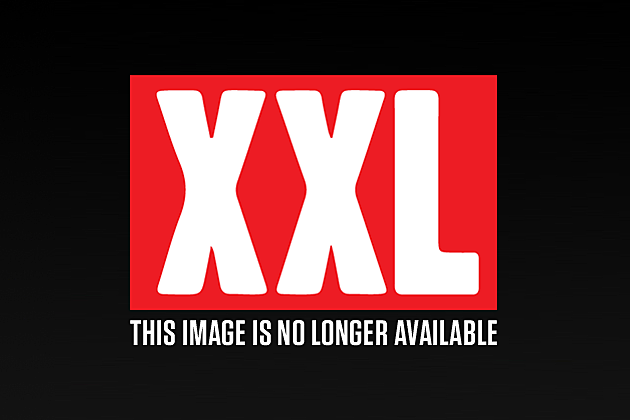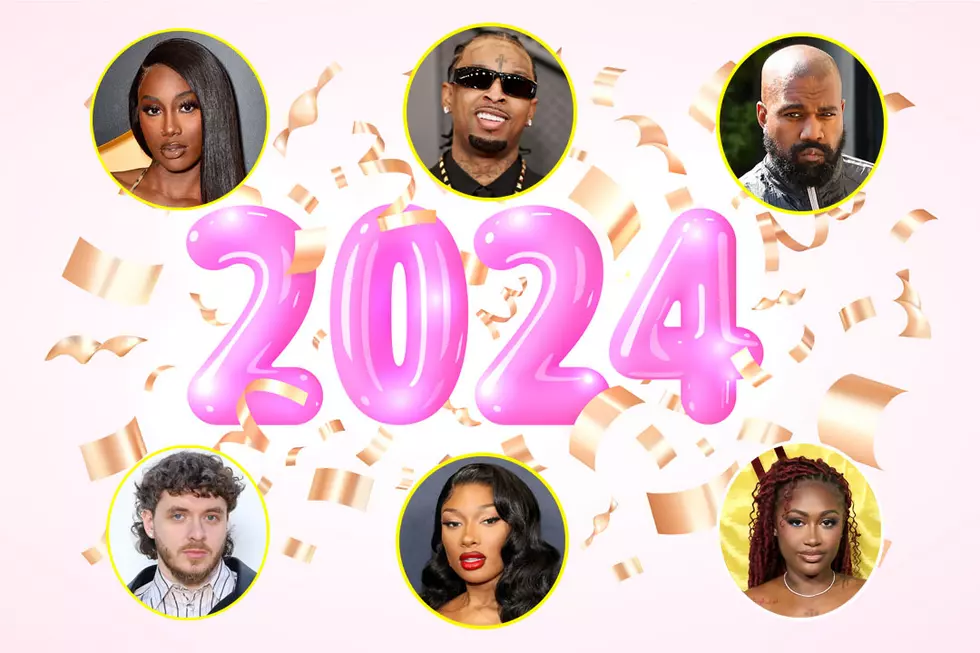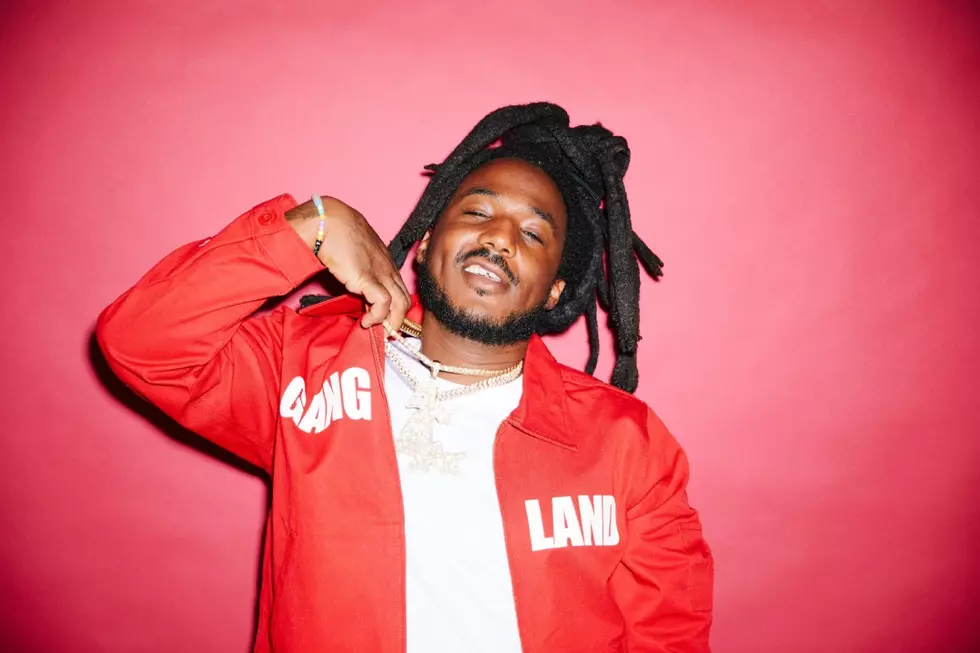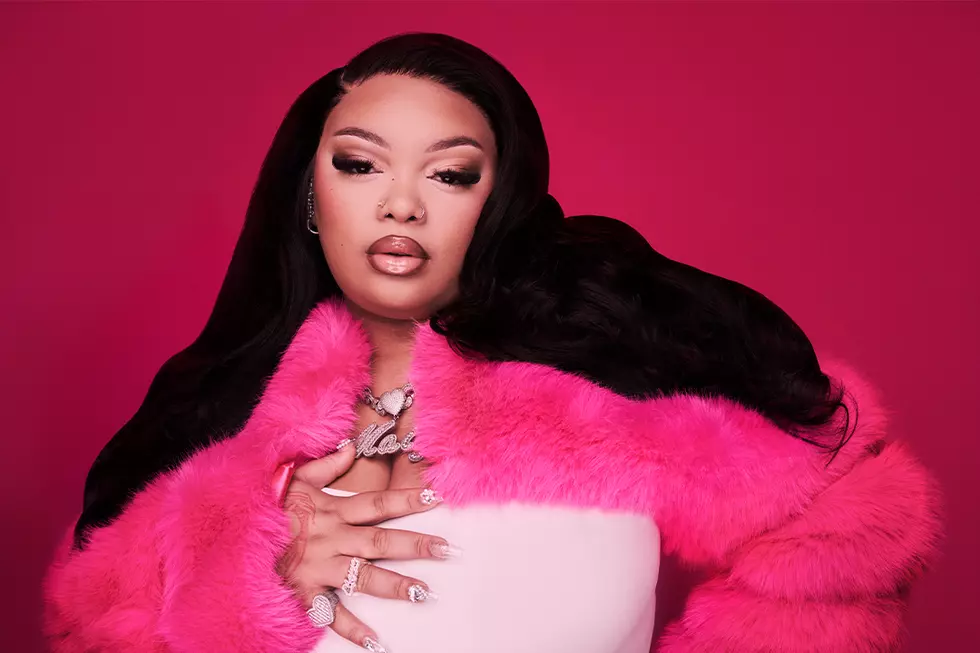
Audio Push Have Reinvented Themselves As Hit-Boy’s Secret Weapon
Second chances are hard to come by in life, and especially in hip-hop: your first impression is usually your destiny. So back in 2009 when Audio Push came out with “Teach Me How To Jerk,” the impression most had about the duo were that they were one-hit wonders. The song would suffocate their young careers and the harshness of the music industry didn’t help the then-17-year-olds from Inland Empire, Calif.
Fast forward to 2014, and things have turned around. With a new team, HS87, headed by Grammy Award-winning super-producer and rapper Hit-Boy, coupled with a mature and aware mind state after their first taste of fame, Audio Push got their second chance. This time they've surprised almost everyone with their latest mixtape, Come As You Are. While the tape's popularity continues to balloon, Pricetag and Oktane stopped by XXL offices to discuss HS87, C.A.Y.A. and the difference between their first go-around in the industry, and this one. —Emmanuel C.M. (@ECM_LP)
XXL: What is HS87?
Pricetag: That’s Hit-Boy's label that he put together. It was his dream. We’re signed to him, along with Kevin Roosevelt—K. Roosevelt is a singer, crazy dope artist. We're all signed to his label, which is through Interscope. We also got mad people on the team, mad producers like HazeBanga, Kent M$ney, B Mack The Queen. We got writers, producers, rappers, artists, we got culture
Oktane: The whole thing is just young culture. We all came together and [are] just collaborating on music and that just grew into one big thing. Now we on jackets and everything.[Laughs]
How did you get started rapping?
Price: Me and my cousin lived in my grandmother's house. It was like a grip of us all in one house—girl cousins, boy cousins—and we used to rap. We had a boombox with those little mics that hooked up to the boombox and you get to talk into it. We used to steal my grandmother's tapes, record over her tapes. We'd take, like, beats from a video game, whatever beats we could find and bring the boombox as close to the TV as possible and tape our song. It was terrible, but that's where I first stared rapping. I remember I left the group because they weren’t dedicated. That’s how I knew I wanted to rap; I always knew I wanted to do it. I literally always wanted to make songs and record songs, but they didn’t want to do it. I had to be 8 years old.
Oktane: I used to go to the YMCA a lot, and I was with my dad and I had heard Rakim's "The 18th Letter." I don’t know what it was about that song; it was the title track of that album. That’s was one of the first raps I ever memorized, and I used to rap that like it was my rap, and I was a super young. I was a little kid. That was the very first time I ever rapped and I seriously really considered rapping.
How did you two meet?
Price: We met in middle school. I was in the 6th grade; [Oktane] was in the 7th grade. We met playing basketball. We literally were into all the same stuff, just like now. We were into hooping, we were into clown dancing, krumpin' at the time, and we lived down the street from each other. We took the same bus to school.
Let's talk about the growth between 2009 Audio Push when you guys had the smash hit, "Teach Me How To Jerk" to Come As You Are? It's like you're are on two different ends of the spectrum. How old we're you when you made that song?
Price: We made that song we was were 17, going on 18.
Oktane: [We made it the] same way we make music now, it's just [that now] our minds are in a different place. But it's the exact same formula, we just talk about what’s going on. At that time, jerkin' was the shit.
Price: We made the song back when MySpace was poppin' and we had more songs. At the time, jerkin' was fun; it was something you do at parties. Before it became battling and all this crazy stuff. Before it was a movement, it was just a cool little thing to do. We were the first people to make a song about it, and that’s just the song that ended up taking off. We ended up getting signed off it, went to South Africa and travelled the world off of it.
Oktane: The difference between then and now is we just grew up. It's just more maturity to what’s going on, so the music is more mature.
Price: We always have been able to make music, we just had to grow. Like I said, we went to Africa. That changed a lot with us and [how we] dealt with stuff. I've got a two-year-old son now. We grew up, we are now putting ourselves into our music. And we're going to continue to keep growing.
When did HS87 form?
Price: Officially, like two years go, and that was just a name for us hanging around each other. We always have been around each other; we've known him back since the MySpace days. He was the one who told us to be a group. We started out both rapping and we were just best friends and close and we were just each other's hype man. We would perform and people used to say, man y’all chemistry crazy, y’all should just be a group.
Where did the Audio Push name come from?
Oktane: We were originally The P.U.S.H.—Praying Until Something Happens. And that’s what P.U.S.H. still stands for. Then when we got signed, everything was good until there was a foundation called The P.U.S.H., so we had to switch our names to get the deal. We had a song called “Audio Kiss,” which was about touching your girl musically—and Sean [of production duo Kadis And Sean] was like, y’all should be called Audio P.U.S.H., y’all really touch people with your music, and it's a global name and it's hard.
Price: I rocked with it early because, to me, it sounded like a rock band, like alternative music, and I’m into that type of music, too. So instantly, people don’t think of two young black kids from the IE when they hear the name. It takes us to a different place.
I know Hit-Boy did a lot of work with the tape. How did it come together?
Price: On Lil Wayne's tour, we had a studio on our bus. We tapped into on our inner "us." What we really grew up on, what we really listened to and what hip-hop means to us, and what it's missing now. Hip-hop is sampling; sampling is a part of hip-hop. Old songs that used to make you feel good, hearing them over hip-hop beats. That’s why I started rapping. So we just tapped into that, making music with feeling and creating a cold body of work.
And we realized, since "Teach Me How To Jerk," people been sleeping on us. We put out other tapes, but we wanted to put out a tape of cold work on all levels that we can give for free that you can press play and just coast. Just coast.
What do you think Hit brought to the table?
Price: His sonics; his ear is crazy. His post-production is crazy. We'll start the beginning of the joints—even if he didn't produce it—he just comes in and oversees it.
Why did you name the tape Come As You Are?
Price: I listen to mad music. I’m crazy about album titles before we even start.
Oktane: Yeah, like having a set plot before we even start.
Price: So I was just listening to music, and I was listening to Nirvana and listening to the lyrics and it founded our story. We told people, come as you are, because we are who we are. These people kept trying to change us. They tried to change us when we first got signed; a lot of stuff we were doing, we were young and doing it because the label would tell us to do it. But then we tapped into being just us.
Oktane: This album represents embracing yourself, coming as you are and being an individual. However we are, it's just us.
Previously: Hit-Boy Is Trying To Recreate Quality Vibes With His HS87 Imprint, Audio Push Project
More From XXL









